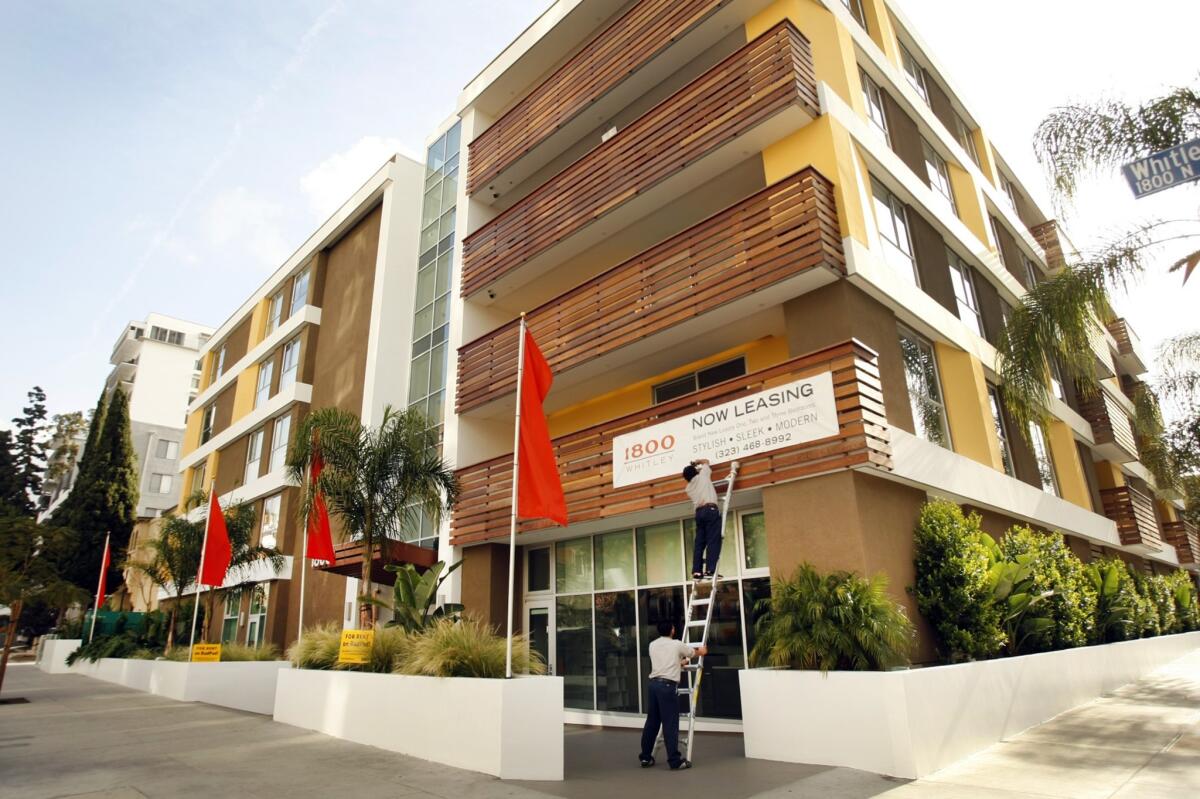California housing bills could take away subsidies for homeowners and add them for renters

California lawmakers have introduced more than 130 bills this year that try to tackle the state’s housing affordability crisis.
Reams of statistics support the depth of the problem: California’s homeownership rate is at its lowest since World War II, a third of renters spend more than half of their income on housing costs and the state has nearly a quarter of the nation’s homeless residents — despite having 12% of the overall U.S. population.
William Fulton, director of the Kinder Institute for Urban Research at Rice University, said he has never seen such interest in housing in the three decades he’s been tracking the issue in California.
“It is the biggest issue in the state right now,” Fulton said.
Here’s a guide to some of the most significant housing bills up for debate in Sacramento and what they might do.
Financing low-income housing
For decades, federal and state politicians have subsidized homeowners, most prominently through giving them the ability to deduct interest from their home mortgages on their taxes.
But Assembly Bill 71 from Assemblyman David Chiu (D-San Francisco) aims to eliminate the state portion of that tax break for second, vacation homes and redirect the approximately $300 million it costs the state annually toward financing low-income housing instead.
Chiu’s bill is one of a number of efforts designed to boost funding for low-income projects. Senate Bill 2 from Sen. Toni Atkins (D-San Diego) and Senate Bill 3 from Sen. Jim Beall (D-San Jose) are the most prominent. Atkins’ bill would raise between $230 million and $260 million a year through a $75 fee on real estate transactions, such as mortgage refinances, except for home sales. Beall’s would put a $3-billion bond to fund low-income housing on the 2018 statewide ballot.
Assembly Constitutional Amendment 4 from Assemblywoman Cecilia Aguiar-Curry (D-Winters) would make it easier for local governments to raise taxes or pass bond measures to fund low-income housing. Her proposal would lower the margin needed to pass such measures from a two-thirds supermajority to 55%. This would also go on the 2018 ballot.
All these bills require two-thirds supermajority votes of the Legislature to pass, so they face high hurdles. And although most economists and housing experts believe more public dollars are needed to house the state’s poorest residents, greater subsidies won’t fix the problem. A report from the nonpartisan Legislative Analyst’s Office estimated that building affordable homes for the 1.7 million low-income households in California that currently spend half their salaries on housing would cost as much to finance each year as the state’s spending on Medi-Cal.
Removing obstacles from development
Last year, Gov. Jerry Brown failed in his bid to lessen local restrictions for developments that reserved units for low-income residents. His proposal by itself wouldn’t have created substantial new housing, but it would have profoundly changed the housing approval processes in Los Angeles, San Francisco and other cities that have multiple hurdles in place before new housing is approved.
While no one has replicated Brown’s effort so far, lawmakers have introduced narrower bills aimed at getting local governments to speed up their approval of housing, or preventing cities from blocking projects.
Senate Bill 35 from Sen. Scott Wiener (D-San Francisco) would force cities to streamline their permit processes if they’re not keeping up with state housing production goals. Assembly Bill 72 from Assemblyman Miguel Santiago (D-Los Angeles), Assembly Bill 678 from Assemblyman Raul Bocanegra (D-Pacoima) and Senate Bill 167 from Sen. Nancy Skinner (D-Berkeley) would strengthen and add money to enforce a state law that prohibits cities from denying low-income housing projects.
Assembly Bill 352, also from Santiago, would force cities to permit tiny apartments — as small as 150 square feet — as a way to house people more affordably. Many cities now require units to be larger.
Local governments have responded to this push with their own favored legislation, including Senate Bill 540 from Sen. Richard Roth (D-Riverside). This bill would allow cities to borrow money from the state to plan neighborhoods as zones for affordable housing. Once the planning is done, approval of such projects would be fast-tracked.
New tax breaks for renters and homebuyers
Two bills from Republican lawmakers would create or expand housing tax breaks. Assembly Bill 181 from Assemblyman Tom Lackey (R-Palmdale) would double the state tax credit that low- and middle-income renters receive to $240 for married couples and $120 for single filers. Assembly Bill 53 from Assemblyman Marc Steinorth (R-Rancho Cucamonga) would allow couples to save up to $20,000 tax free — $10,000 for individuals — toward the purchase of a principal residence.
Expanding rent-controlled, low-income rentals
Assemblyman Richard Bloom (D-Santa Monica), who has consistently been a sponsor of housing legislation, has introduced a host of bills this year. Three proposals, Assembly bills 1505, 1506 and 1521, would increase low-income housing by allowing cities to force developers to build more low-income rentals as part of their projects, expand rent control and protect aging affordable housing stock from going back on the market, respectively.
Based on a law in Massachusetts, Bloom’s Assembly Bill 1585 would introduce an out-of-court state appeals board for developers whose low-income housing was rejected.
Despite its failure, Brown’s housing legislation spurred a discussion that has raised the issue’s profile within the Capitol, Bloom said.
“I think it’s one of the most pressing issues that the state faces,” he said. “In addition to having statistically some of the worst poverty in the country, it’s exacerbated by the fact that housing prices are out of control.”
Twitter: @dillonliam
ALSO
California doesn’t have enough housing, and lawmakers aren’t doing much about it
Updates on California politics
More to Read
Get the L.A. Times Politics newsletter
Deeply reported insights into legislation, politics and policy from Sacramento, Washington and beyond. In your inbox three times per week.
You may occasionally receive promotional content from the Los Angeles Times.







